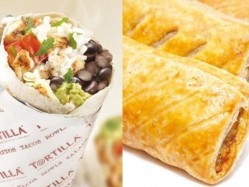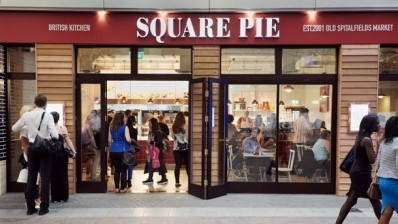Restaurant sector 'cautiously optimistic' about closure of VAT loophole for takeaway food

Under the existing rules, hot food is VAT exempt if it can be proved that it is not designed to be eaten immediately and is only kept hot to improve its appearance and aroma.
This loophole has been exploited by supermarkets, bakeries and sandwich shops, which are able to sell cut-price hot pies, slices, wraps and even pizza, much to the chagrin of takeaway-focused fast-casual operators, such as Leon, Square Pie and the Mexican burrito chains.
“Alignment of VAT between all hot food suppliers is good news because it removes the competitive anomalies that currently exist in the market,” says Brandon Stephens, founder of burrito chain Tortilla. “But I find it startling that there has been such a vocal reaction from people that have enjoyed such an extended free ride.”
Ken McMeikan, the chief executive of Greggs has responded robustly to the impending closure of the loophole, which has wiped £30m off the bakery chain’s value. The Chancellor’s new VAT rules, which will come into force from 1 October, have also been criticised for adding an extra layer of complexity to the VAT system, with accountants anticipating a series of expensive court cases.
Complicated rules
Under the new rules, whether a product is VAT chargeable depends on its temperature at the point of sale, and this is judged in relation to ‘ambient temperature’. “On a warmish day, a lukewarm pasty from Greggs is not VAT-able because the ambient temperature outside is the reference point, whereas if it is the middle of winter and freezing cold it is VAT-able,” says Labour MP John Mann, who opposes the change.
“It is an extraordinarily complex situation when you are having to check with the Met Office on whether or not to add VAT on pasties in Greggs.”
The situation at sandwich shops such as Subway, where VAT is not currently charged on its hot sandwiches, is even more complicated. At the sandwich chain many fillings are heated and combined with cold ingredients and bread; depending on the variety and quantity of the filling the result could either be piping hot or barely warm at the point of sale. Further muddying the waters, the only hot product that is VAT exempt is freshly baked bread – and Subway bakes bread on-site throughout the day.
There are fears that the complexity of the rules will cause the Chancellor to modify the proposal in favour of the retail sector. “Our worry is that George Osborne will bow to pressure and retract the changes, and our sector will be stuck with the absurdities of the current situation,” says Stephens. David Buttress, managing director of takeaway website Just-Eat, echoes this view: “It could become incredibly complex. I hope that this doesn’t become another Government scheme that’s pulled because some shout louder than others.”
Despite such concerns, at a time when more and more restaurant operators are boosting profitability by going ‘mixed model’ – a split between eat-in and takeaway sales – the prospect of a level playing field must be seen as good news.
This article is in the April issue of Restaurant magazine. Subscribe here.


























